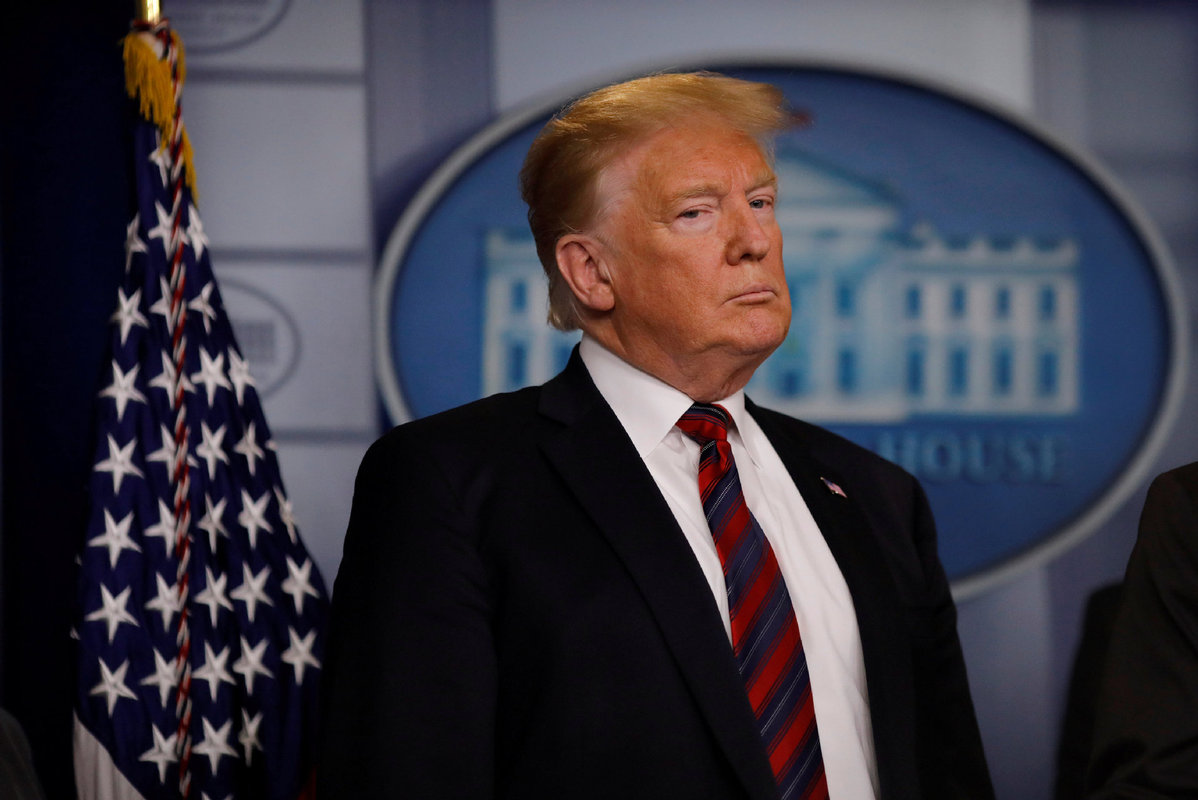Trump targeting Asian immigrants
By MAY ZHOU in Houston, Texas | China Daily USA | Updated: 2019-01-04 23:00

Some of the Vietnamese who settled in US after the war face increasing threat of deportation
Robert Huynh from Houston was fathered by a soldier from the United States during the Vietnam War. He immigrated to the US as a 14-year-old with his Vietnamese mother in 1984 under the Amerasian Act, which allowed immigration to the US of certain children fathered by a US citizen.
Now, 34 years later, with two grandsons and a mother, 84, Huynh faces the possibility of being deported to Vietnam because the Trump administration is seeking to dissolve a repatriation agreement that is up for renewal with Vietnam.
Under US law, immigrants including green card holders with criminal records are subject to deportation to where they came from. However, the agreement bars the deportation of any Vietnamese immigrant who entered the US prior to July 12, 1995 — the date Vietnam and the US re-established diplomatic relations.
The agreement, sparing Huynh and other Vietnamese immigrants with criminal records from deportation, has been automatically renewed for years. But the rhetoric of the Trump administration on immigration has cast a shadow over the agreement, as well as that of almost 9,000 people in situations similar to Huynh's.
"I got into trouble with the law in 2004, and I served three years in prison," said Huynh on Dec 21 at a gathering where those facing deportation told their stories and pleaded for society and the government to help them.
The event was organized by the Organization of Chinese Americans (OCA) and the Council on American Islamic Relations.
Growing up in Vietnam, Huynh and his mother were treated as enemies by other Vietnamese because his father was a US soldier fighting against Vietnam, he said.
"I don't think that's right to deport us. Since I came to the US, I have never been back to Vietnam. This is my country, and I belong here," said Huynh, who works at a nail salon.
If deported, Huynh would be forever separated from his family in the US and has no ties in Vietnam. Such a prospect is frightening, as it is for Nam Nguyen, a tile worker who has two teenage children.
"It's estimated that more than 8,600 Vietnamese people are on a final order of removal. This devastates the communities and strikes fear among us," said Steven Wu, vice-president of the Houston chapter of the OCA.
"I am a firm believer in second chances,'' said Khanh Pham, an attorney and legal services manager at the Houston chapter of the Boat People SOS, a nonprofit organization devoted to civic and political activism. "These people served their time; now they have no second chance."
Pham currently represents more than 20 ethnic Vietnamese on removal orders. He said that deportations targeting the Asian community quietly started in March 2017, when US Immigration and Customs Enforcement began to detain Vietnamese on the removal list for a period of a couple months to a year.
Charles Foster, a prominent immigration lawyer who had been an immigration policy adviser to presidents George W. Bush and Barack Obama, called the move "ruthless and heartless".
Foster is critical of US President Donald Trump's immigration policy: "Everyone knows that Trump wants to be tough on illegal immigration, but he's tougher on legal immigration. They are doing all they can to change legal status into illegal status across the board. They are making everything, from qualifying people through family and employment, more difficult."
Immigration has been dominating the agenda of the Trump administration.
Foster said it is 100 percent politics. "Trump thinks it is good politics to scare people about immigrants. So he's calling for the wall and scares people when he talks about the caravan. He's successful so far in getting conservative Republican voters scared about this. The truth is we have the lowest illegal immigration in almost 50 years," he added.
Building a wall separating Mexico from the US has been on Trump's agenda since he campaigned for office. For months, Trump has been seeking $5 billion from Congress.
While Trump is wrangling with Congress over money for the wall, a 37-year-old Florida resident, Brian Kolfage, a veteran who lost both legs and an arm during the Iraq War, started a GoFundMe campaign on Dec 16 with the hope of turning Trump's wall pledge into reality. His goal is to raise $1 billion.
"If the 63 million people who voted for Trump each pledged $80, we can build the wall. That equates to roughly $5 billion, even if we get half, that's half the wall. We can do this," Kolfage wrote on a fundraising page "We The People Will Fund The Wall".
By Dec 26, the fund had raised more than $17 million from more than 284,000 donors.
























